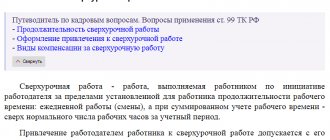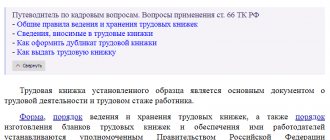28 days annual leave cannot be replaced with money
Each employee with an employment contract is entitled to 28 calendar days of vacation per year. Vacation pay is retained. On a part-time basis, the number of days is not reduced. Non-working holidays are not counted towards vacation - Art. 115, 120 Labor Code of the Russian Federation.
These 28 days cannot be replaced by monetary compensation. Even when everyone doesn't mind. The employee must take a vacation. The exception is when he did not have time to rest and quit or the company was in a rush situation - this will be discussed below.
Vacations can be divided into parts. But one of the parts must be at least 14 days. The remaining days can be scattered throughout the year. Splitting up vacation is a crutch for the employer if there is no one to replace the employee for a whole month - Art. 125 Labor Code of the Russian Federation.
The working year for calculating vacation begins from the date the employee was hired, and not from the first of January. For example, the studio entered into an employment contract with a seamstress on May 20, 2021. This means that the seamstress must take 28 days off until May 20, 2022. This follows from paragraph 1 of the Rules of the People's Commissariat of the USSR dated April 30, 1930, No. 169.
The first time an employee rests is six months after being hired. Unless the employer doesn't mind letting you go early. Early leave must be given to pregnant women before maternity leave, minors and adoptive parents of children under three months old.
Then the employee goes on vacation as scheduled. But parents of disabled children, families with many children, minors and veterans choose their place in the schedule themselves. And a pregnant woman has the right to take a vacation completely unscheduled - before going on maternity leave or immediately after - Art. 122, 123, 260, 262.1, 262.2, 267 Labor Code of the Russian Federation.
Article: how to send an employee on vacation
The employer approves the vacation schedule two weeks before the start of the year. That is, until December 17th. The employee is notified of his leave two weeks in advance.
The employee is required to go on vacation as scheduled. He cannot choose “double vacation pay” instead of rest. Just by choice, be at work and not rest either. In one case, an employee tried to prove that he was not required to rest. At this time there was downtime at the enterprise. The court said that going on vacation is mandatory. Downtime does not cancel the schedule. The employer has the right not to allow the employee into his territory during vacation - case No. 33-1123/2018.
Registration of replacement of paid vacation with monetary compensation
The employer formalizes the replacement with monetary compensation in writing in absolutely any form. In this case, the entry itself will be entered in the “Vacation” section of the employee’s card.
The type of leave is indicated in the column “Type of leave” accordingly (this is either the main paid leave or additional). The number of days that will be replaced by monetary compensation is written in the column “Number of calendar days of vacation.” In the “Note” column, the number of replacement days must also be indicated.
If the days are not complete, but let’s say 21.34, then rounding is done at the employer’s discretion. There is no specific rule on this point, but it is mandatory.
If there is an emergency, the vacation can be postponed until next year
If everything collapses without an employee, the vacation can be postponed to next year. All 28 days or partly - Art. 124 Labor Code of the Russian Federation.
You must understand that the reason for the transfer must be very serious. For example, the clothing industry won a government contract to supply bed linen for hospitals. If the seamstresses go on vacation, the supplier will break the contract. Therefore, the vacation is postponed.
To postpone the vacation, the employee’s written consent is required, without this there is no way.
The employee is not paid compensation for postponing vacation. This is not a replacement for vacation with money. It’s just that next year the employee will take more than 28 days off and will receive more vacation pay.
The canceled vacation must be given to the employee next year. It cannot be postponed for another year. A year without vacation is possible, two is no longer possible. Let's imagine that our seamstress agrees not to rest during her working year from May 20, 2021 to May 20, 2022. Then she uses her 28 days from May 20, 2022 to May 20, 2023.
It is impossible to cancel leave for professional needs for minors and employees with hazardous working conditions based on the results of a special assessment.
The employee may not be satisfied with the cancellation of the vacation; he will complain to the labor inspectorate and the court. The employer must be prepared to prove the urgent need for the transfer. And keep the employee’s written consent ready. Otherwise, the inspectorate will fine you. The employer will be forced to give vacation according to the schedule. And the employee will seek compensation for moral damages.
In one case, the management of a nursing home postponed the head nurse's vacation until next year. The reason is that there is no one to work. The nurse did not agree to this. The nurse’s signature indicating that she was familiar with the shift schedule for the coming months was not considered consent. The boarding school was ordered to send the nurse on leave and was awarded compensation for moral damages of 2,000 rubles - case No. 33-14615/2017.
Compensation upon dismissal
When an employee is dismissed, most misunderstandings and conflicts arise, including in connection with the calculation of compensation for unused vacation. Briefly, this issue is regulated by Art. 127 of the Labor Code, but its application requires some specific knowledge.
For example, we must not forget that annual paid leave is provided to all employees without exception - including temporary, seasonal, part-time employees, etc. (Article 114).
It is also important that all amounts due to the employee, including compensation for unused vacation, must be paid on the last day of work (also known as the day of dismissal).
The employee should check that the accounting department has not forgotten anything. If you disagree with the amount of the amount paid and receive a refusal to recalculate, the employee should still receive compensation in the undisputed part, as well as a salary certificate.
Fine if the employee did not go on vacation
The Labor Inspectorate fines employers under Art. 5.27 of the Code of Administrative Offenses of the Russian Federation, if the employee’s vacation was replaced with “double vacation pay” or, by order, it was postponed to the next year.
The fines are:
— For individual entrepreneurs — from 1000 to 5000 ₽;
— For LLC — from 30,000 to 50,000 ₽;
— For LLC directors — additionally from 1000 to 5000 ₽.
Excuses to the inspector that the employee is a workaholic and himself asked to replace the vacation with money will not fly. An example is in case No. 21-477/2017.
Here's a question. If the employee does not go on vacation, is it possible to issue a vacation order and issue vacation pay, but in fact he will go to work? It will turn out that the vacation will be replaced with money, but according to the papers it will be clear. After all, a policeman is not assigned to every employer. Whether there will be problems depends on the employee. If he changes his mind and complains to the inspectorate about fictitious leave, the employer will be punished.
Is personal income tax deducted from compensation for untaken vacations upon dismissal?
Personal income tax is always deducted from the monetary replacement of untaken vacations (paragraph 6, paragraph 3, article 217 of the Tax Code). This contribution is transferred no later than the next day after it is transferred to the person resigning (clause 6 of Article 226 of the Tax Code). The rate for it is 13 and 30% (for residents/non-residents of the Russian Federation).
Money for untaken vacations received by a citizen is not payment for work duties, and therefore is displayed by the date on which they were actually transferred (clause 1 of Article 223 of the Tax Code).
Information on this tax is entered in ascending order in Section. 1 and 2 in form 6 personal income tax (Article 226 of the Tax Code of the Russian Federation). The 2-NDFL certificate reflects this parameter using the code 2013 according to the Federal Tax Service letter No. ММВ-7-11/ [email protected] The amount paid is displayed in the 6-NDFL form for the period before the citizen’s dismissal, and in the 2-NDFL this data is entered when the annual is drawn up and submitted reports after this procedure.
The employer is obliged, at the request of the dismissed person, to give him a 2-NDFL within 3 days after the application, however, this also applies to any other certificates. Under no circumstances does he have the right to refuse this (Article 62 of the Labor Code). The specified certificate is also often given by default when making calculations, since it is required for many departments to which the dismissed person will presumably apply (employment and social security agencies, tax, financial institutions when taking out loans, etc.) This document reflects the amount of income received.
Extended vacations can be replaced with compensation, but not for everyone
Some employees are entitled to vacation longer than the usual 28 days:
- disabled people - 30 days - Art. 23 of Law No. 181-FZ;
- workers with hazardous working conditions - at least 35 days - Art. 117 Labor Code of the Russian Federation;
- employees with irregular hours - 31 days - Art. 119 Labor Code of the Russian Federation;
- workers of the Far North - 52 days, and from equivalent areas - 44 days - Art. 321 Labor Code of the Russian Federation;
- minors - 31 days - Art. 267 Labor Code of the Russian Federation;
- teachers of kindergartens, schools, universities and colleges - from 42 to 56 days - Art. 334 Labor Code of the Russian Federation;
- extended vacation for any employee, if the employer has decided so, and this has been written down in the employment contract.
Vacation days over 28 can be replaced with money. For a replacement, you must take an application from the employee. The employer himself cannot make such a decision - Art. 126 Labor Code of the Russian Federation.
Vacation cannot be replaced with money for pregnant women, minors and workers with hazardous working conditions - Art. 126 Labor Code of the Russian Federation.
Article: list of all vacations due to the employee
Simple online accounting for entrepreneurs
The service will replace your accountant and help you save money. Elba will prepare the reports herself and send them via the Internet. It will calculate taxes, help prepare documents for transactions and will not require special knowledge.
Try 30 days free Gift for new entrepreneurs The promotion is valid for individual entrepreneurs under 3 months old
Who is prohibited from replacing vacation with money?
Certain categories of working citizens who are entitled to extended leave due to special circumstances will not be able to receive material payments instead of rest days, since this is prohibited by law. The list of persons who will have to use vacation days in full is indicated in Article 126 of the Labor Code . These include:
- women during pregnancy;
- employed minor workers;
- persons working in heavy or hazardous work.
How many vacation days can be replaced with money?
It is worth noting that extended leave for harmful or difficult working conditions can be partially compensated, only for a period that exceeds
7 days . That is, the employee will annually rest 28 days of the main vacation, 7 days of extended vacation, and the remaining days, if any remain, can be replaced with cash payments.
How to get cash coverage
As mentioned above, if an employee is not sure whether it is possible to replace the leave of monetary compensation in 2021, it is worth seeking clarification from the article of the law. The rule stipulates that compensation is paid only upon dismissal, for all required vacation days, or if non-core days are not used. To obtain it you need to do the following:
- Submit a free form application. If there is a special form - on the form. The header of the application indicates the position of the person who will endorse the application and his full name. Next, indicate the full name of the applicant.
- The name of the document is “statement”.
- The text itself is a request to replace vacation days with a cash equivalent. Indicate under what circumstances the additional leave was given, its duration and refer to Article 126 of the Labor Code of the Russian Federation on the right to receive compensation.
- Put the date and your own signature.
After 10 days or on the date of the next payment of wages accepted at the enterprise, the payment must be issued to the applicant. Basic leave cannot be replaced by compensation. This is a violation of the law and the guilty person is subject to administrative liability in the form of a large fine. The dilemma of whether it is possible to take compensation for unused vacation, if it is not the main one, without imposing penalties on the employer, suggests the answer: yes, it is possible.
Watch the video about vacation compensation before dismissal:
Upon dismissal, the employee is required to pay compensation for all days of vacation. If it was not provided within two years, then in two years.
If during the year of dismissal the employee managed to use part of the vacation, compensation will be less by the number of days used. It is subject to tax and insurance contributions according to established rules. Read more about the deduction of insurance premiums from compensation on our website https://otdelkadrov.online/7683-varianty-uderzhaniya-strahovyh-vznosov-s-kompensatsii-za-neispolzovannyi-otpusk
If an employee does not have the right to receive additional leave, then he does not have the right to compensation for vacation days, for example, unused for 2 years and, accordingly, doubled.
Formula for calculating compensation for unused vacation
To directly calculate compensation, we will need the following data.
- Number of unused vacation days: KDNO = KDO : MG x MR, where:
- KDO - the total number of days of compensated leave;
- MG – number of months in a year;
- MR – the number of whole months actually worked.
- Work experience in the organization giving the right to leave: SR = (PM x 29.3) + (KD - ND) x 29.3/KD, where:
- PM – full months worked;
- KD – the number of calendar days of the month not fully worked;
- ND – days not included in the length of service, i.e. not counted as workers (sick leave, time off, personal leave, etc.).
- Average daily employee’s earnings for the last working year: SDZ = SV: SR, where:
- SV – the sum of all payments for the billing period, excluding sick leave, vacation pay, financial assistance, etc.;
- SR – length of service calculated in days in the organization.
Having all the above data, we can easily calculate the amount of compensation for unused vacation: KO = SDZ x KDO, where SDZ is the average daily earnings, KDO is the number of unused vacation days.
Use of vacation before dismissal
According to Article 127 of the Labor Code of the Russian Federation, when planning to terminate the contract, an employee can take the leave due to him and then resign at his own request. They write a statement indicating the date of dismissal, which should be the last day of vacation. If the term of the employment contract has expired, the employee has the right to use the allotted vacation before dismissal and the date of termination of the contract will also be the last day of vacation.
This date may not coincide with the previously established end date of the employment contract. If a vacation is taken by an employee who has written a resignation letter of his own free will, he has the right to change his mind and withdraw the resignation letter before the start of the vacation. If another employee is hired in his place, then withdrawal of the application for dismissal is not allowed (Article 127 of the Labor Code of the Russian Federation).










